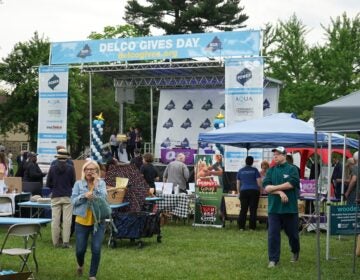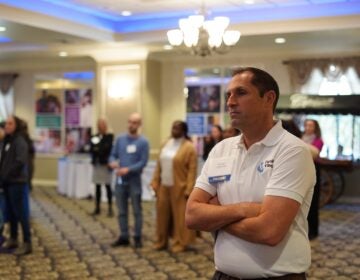How a Delco ‘curbside happy hour’ changed Lansdowne lives for the better
For 260 consecutive weeks since the pandemic, a group of Lansdowne neighbors have gathered to bond over drinks in a suburban spin on Philadelphia stoop culture.
From Delco to Chesco and Montco to Bucks, what about life in Philly’s suburbs do you want WHYY News to cover? Let us know!
The Gladstone Manor neighborhood on the western end of the tiny borough of Lansdowne was designed to resemble an English village with narrow streets and homes in close proximity to each other.
Yet Barbara Silzle, who lives alone, barely talked to her neighbors, let alone entrusted with a spare key.
“I knew who to wave at and say hello and I knew their names, somehow I knew their emails, but we never hung out,” Silzle said. “We weren’t friends so to speak.”
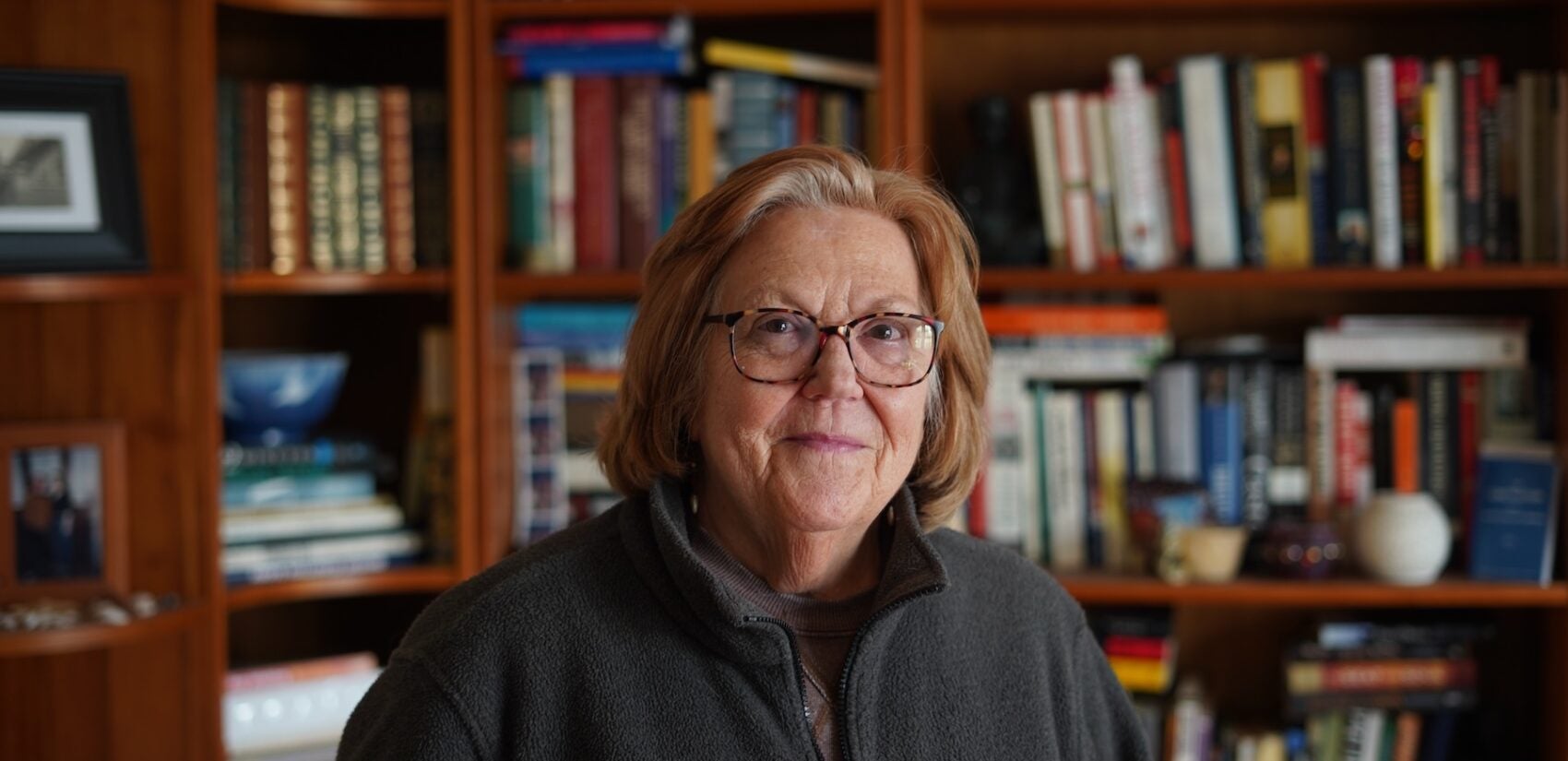
While the COVID-19 pandemic tore the United States apart — killing more than 1.2 million people, decimating the economy and upending education — it also pushed a group of strangers on Eldon Road much closer together.
They navigated the early pandemic lockdown and coped with social isolation by creating a new neighborhood custom.
Thursday marked the fifth anniversary of the Eldon Road Curbside Happy Hour. For 260 consecutive weeks, neighbors have gathered outside to share conversation, drinks, food and laughter.
“People have been living here for 20 years that I didn’t know — who now I sit out every week with and I just didn’t know them before. So it adds a a texture and a depth I think for all of us,” Silzle said. “I don’t want to speak for everyone, but it’s wild that the pandemic really did grow a community here.”
Nearly 20 people descended on Silzle’s driveway recently for the anniversary shindig with bubbly, cake, pizza and a variety of snacks and finger food as one familiar passerby after another waved at the growing crowd seated in their lawn chairs.
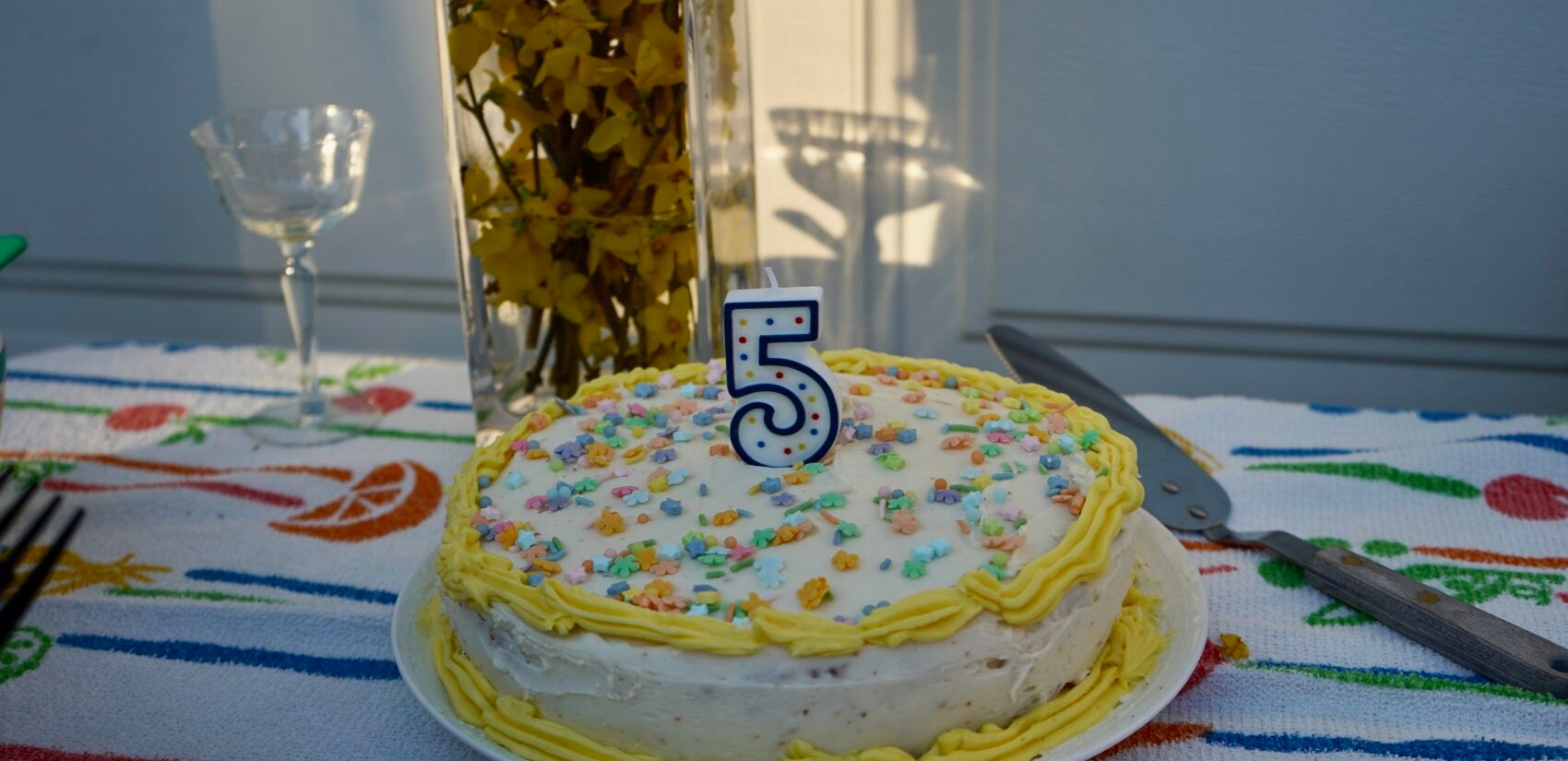
Research shows that making friends as an adult can be difficult and it gets harder as one ages. But, the curbside happy hour even managed to draw 75-year-old Steven Michalson out of his shell.
“Well, to be honest with you, I’m an introvert and so I don’t don’t like large groups and I kind of shy away from it,” Michalson said. “But the fact that we started this five years ago, I learned to love my neighbors and meet new neighbors and it’s helped me personally big time.”
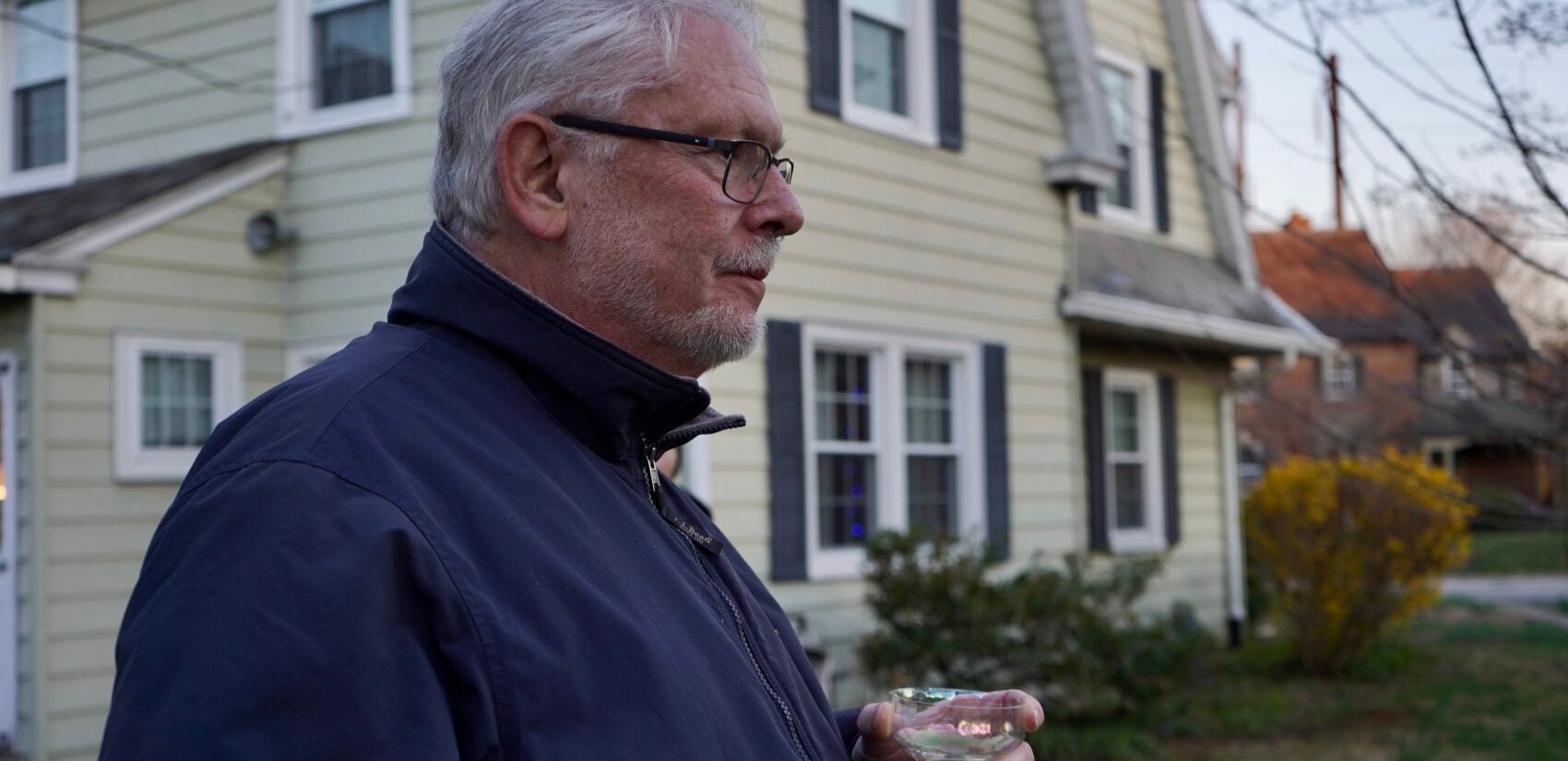
Jorja Fullerton, 67, identified herself as one of the “OGs.”
She said she’s become more outgoing and gotten closer to her neighbors than ever before.
“We support each other. We take care of each other. When Barbara had hip surgery, the neighbors all got together and they were bringing her meals every night,” Fullerton said. “Same thing when I lost my husband. They were very supportive.”
Humble beginnings of Gladstone Manor’s ‘social distancing happy hour’
Silzle, 69, previously served on Lansdowne Borough Council. However, she spent a vast majority of her career in Philadelphia arts circles. Most recently, Silzle was the executive director of the Philadelphia Cultural Fund.
She recalled pounding away on her laptop, desperately working to preserve Philadelphia’s arts community amid a period of COVID-induced cuts to the city budget.
“I was working really hard, isolated here in my house, and realized I needed a happy hour,” she said. “I was missing all of my contacts, all of my normal behaviors, which included hanging out with friends and having cocktails.”
Silzle, like many others, yearned for connection — any connection. America has had a loneliness problem even before the pandemic. Increased loneliness is also associated with poor health outcomes like anxiety, depression and dementia. She felt isolated and scared during the lockdown. Silzle needed to see a face, so she said she did the unthinkable.
She sent an email to her neighbors during the morning of March 23, 2020.
“Hey Gladstone neighbors, any interest in a social distancing happy hour Thursday night? I’m mostly working from home and would greatly enjoy seeing your faces, albeit from a distance,” Silzle said, reading an excerpt from the original email.
Luckily for Silzle, her neighbors wanted to get out of the house, too. They thought it was a great idea even if it meant bringing lawn chairs down to their respective curbs and yelling to each other across the street. The first happy hour adhered to 6 feet of social distancing and then some.
“Barbara would sit here,” Fullerton said, gesturing towards the ground. “Steve would be across the street and we just shouted at each other. And that was just our sanity because it was COVID and we couldn’t do anything. We couldn’t go anywhere. So it was our chance to see other people and not feel so isolated.”
Talking to neighbors? ‘Best thing since sliced bread’
So, they did it again. Rain, sleet, snow or shine, the neighbors would find a way to see each other even if it meant switching the day from a Thursday to a Friday.
“I usually provide the fire,” Larry Harris, 76, said. “We have a fire pit, but it’s a little too windy today and I decided against it, so I bring the fire normally, especially during the winter months.”
Word traveled fast. Within a few weeks, Fullerton told married couple Kelly Jennings, 57, and Diane Chronister, 69. They’d been living about two blocks over in Lansdowne for more than two decades.
“It’s not always the same people, but somebody from this group that’s here tonight meets every week,” Jennings said.
Jobi Zink, 52, remembered when she first encountered the group.
“Every week, I ran by and people were having cocktails and I thought it was great that like, no offense here, but the older people, the retired people were out having happy hour,” Zink said.
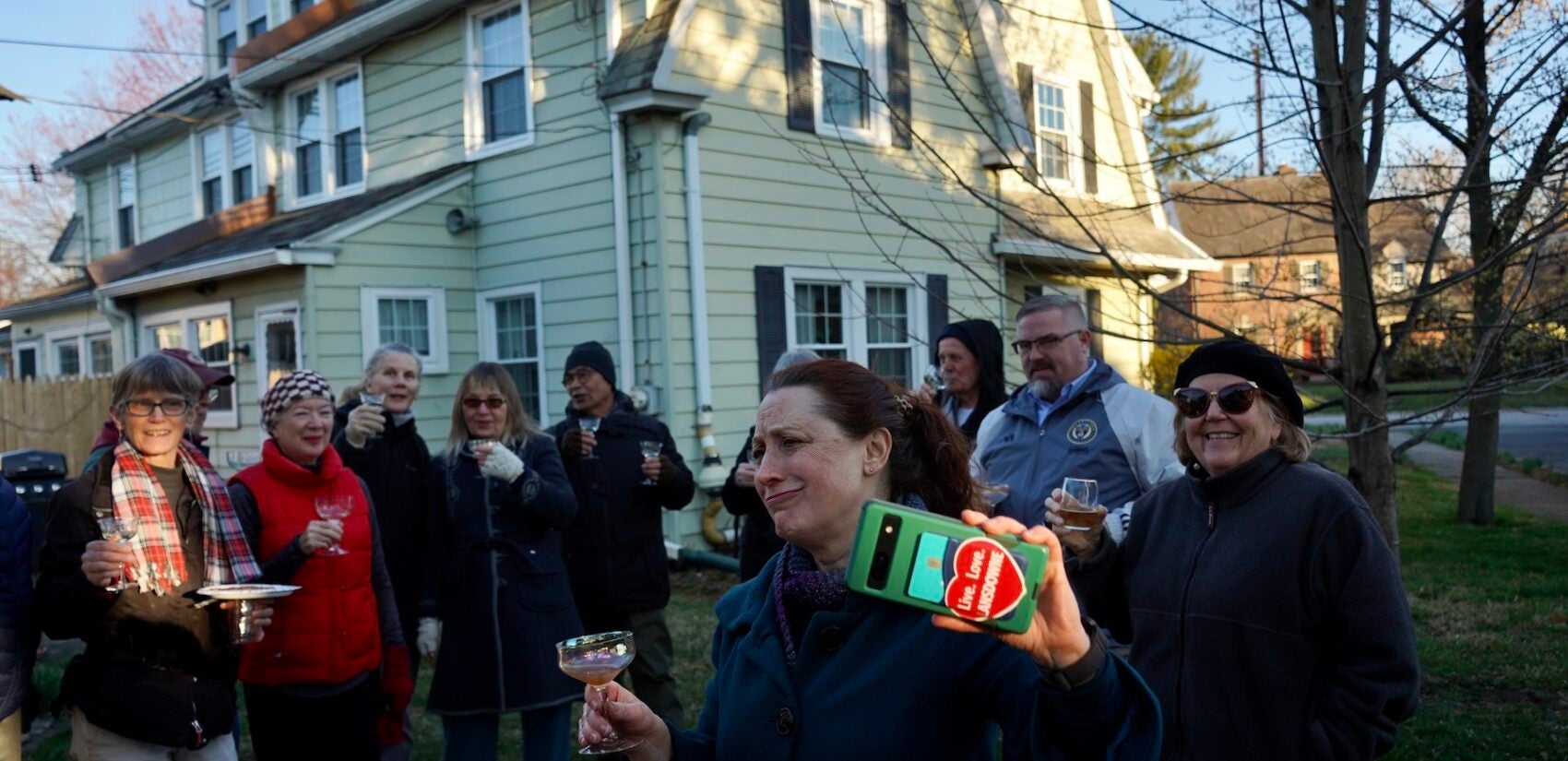
Then she got an invite. Now, she’s a regular. Her dog, Bourbon, also makes an occasional appearance from time to time.
Richard Louis, 72, who walks with his wife Kathy near their home on Windermere Terrace, was pleasantly surprised when he and Kathy got to know about the weekly social.
“We would hear this ruckus — what we thought was a ruckus — we thought they were teenagers, but we found out that it wasn’t,” Richard Louis said.
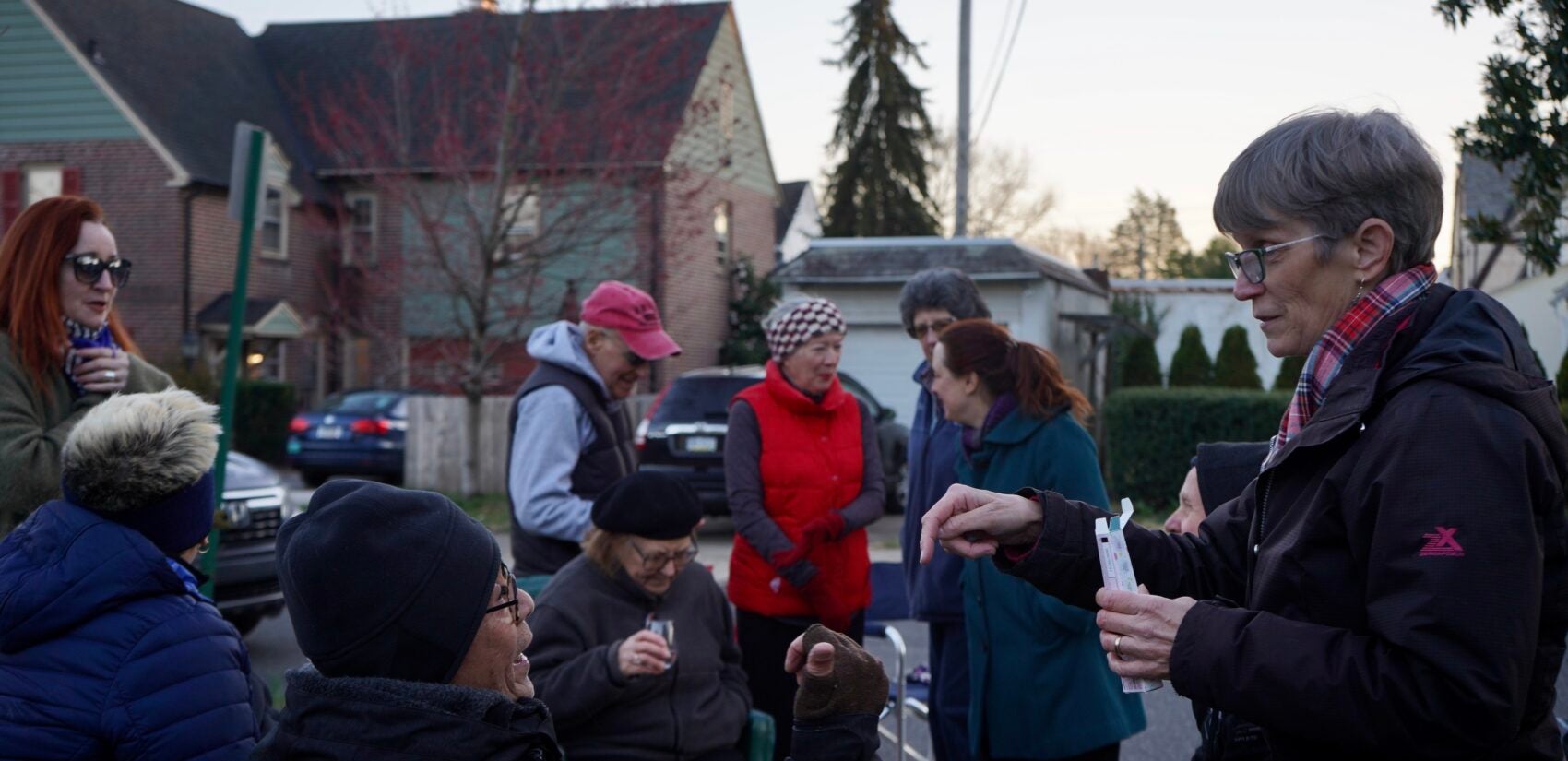
Fran Levanios gave them the lowdown.
“We didn’t really socialize with anybody until this happened and this has been the best thing since sliced bread,” Louis said.
As the pandemic progressed and vaccines became readily available, the neighbors got closer both literally and figuratively. Fully vaccinated, they moved their chairs into Silzle’s driveway. They adopted themed drink nights and even threw a block party. Their conversations grew more personal.
“We talk about not only the pandemic, not only our political views, but we talk about what life really means,” Louis said. “And I think that that has really saved a lot of people.”
Silzle thought people would get tired of the weekly get-together. She offered to make it an every other week affair.
“Everybody vetoed it,” Fullerton said.
Just like ‘the old time neighborhood’
The concept of talking to neighbors is far from new. Philadelphia’s stoop culture is well-documented and applauded. Al Federico, 78, grew up in South Philadelphia. He recalled community members constantly being outside and speaking to one another.
“This was before air conditioning and everybody was always outside with their chairs,” Federico said. “It was like one big block party. All the kids played in the street and all the parents were on either side of the sidewalks talking and laughing and having a good time. And so that’s the way we grew up. It was great.”
When he moved to Lansdowne more than 50 years ago, he remembered feeling closed in. People were friendly but they kept to themselves.
He also attributed the shift over the years to the introduction of air conditioning and the advent of the internet. Beating the heat is much easier with an AC unit than sitting on the porch. FaceTime has substituted the need for some to have in-person interaction.
“This represents more of a throwback to when I grew up where the community was very together and very open,” Federico said.
Chronister has similar memories.
“It’s been real like the old time neighborhood,” she said.
When Chronister and Jennings shared an apartment in the city. They knew their neighbors well. Moving to Lansdowne was a stark contrast. It took years for this moment.
“It’s all Barb just being bored as hell during COVID [that] just got us started,” Chronister said. “It’s like, ‘Hey, I’m bored too.’”
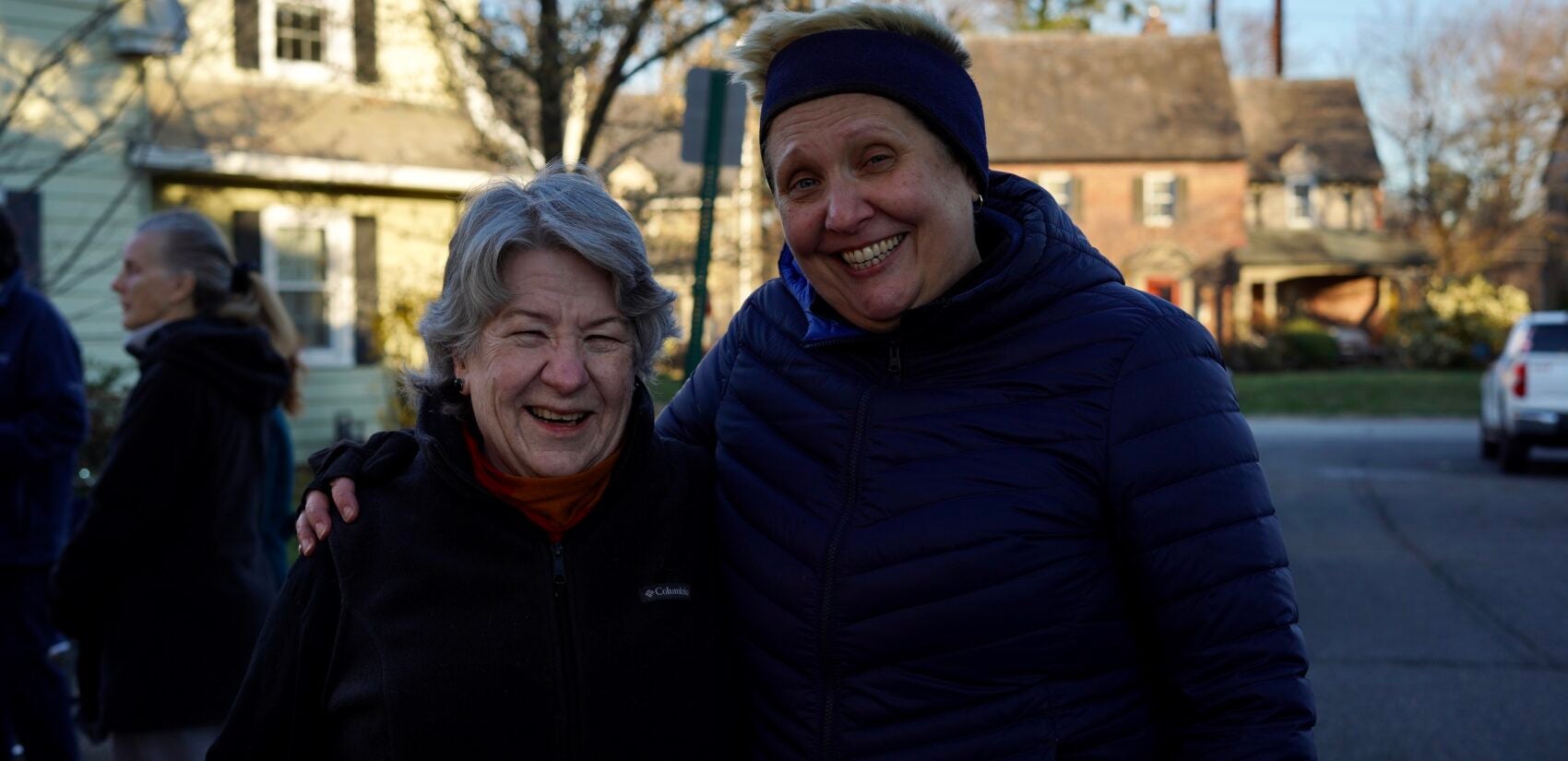
Silzle retired as executive director of the Philadelphia Cultural Fund in April 2022. She doesn’t take ownership of the curbside happy hour. It’s a living group project, she said. The get-together in her driveway continues whether she’s home or not.
Early on, she envisioned the idea spreading to other blocks in Lansdowne. That did not happen. It did, however, inspire people to join their group.
“I think all of us feel like we’re not alone anymore,” Silzle said.
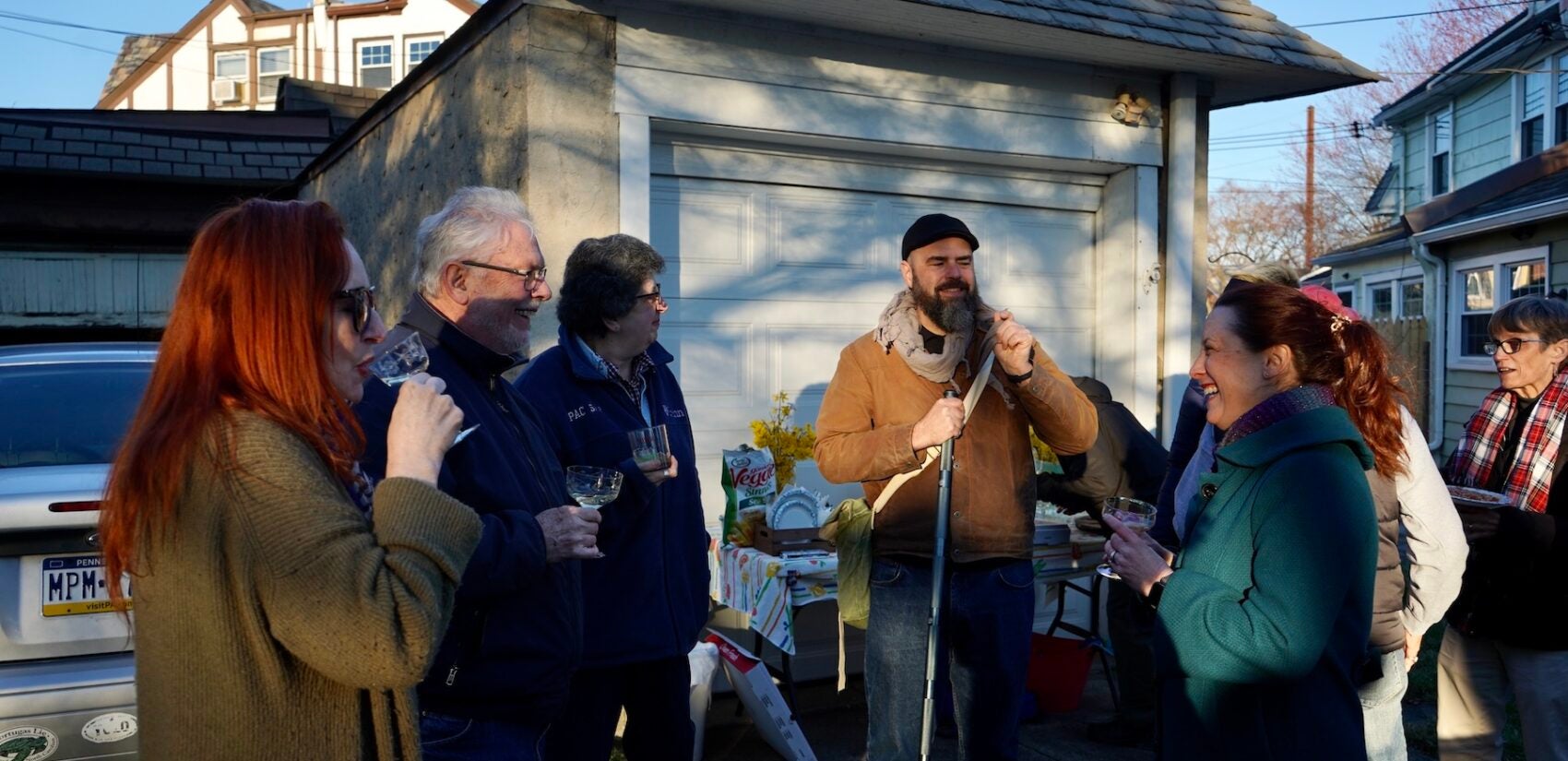

Get daily updates from WHYY News!
WHYY is your source for fact-based, in-depth journalism and information. As a nonprofit organization, we rely on financial support from readers like you. Please give today.




![CoronavirusPandemic_1024x512[1]](https://whyy.org/wp-content/uploads/2020/03/CoronavirusPandemic_1024x5121-300x150.jpg)

